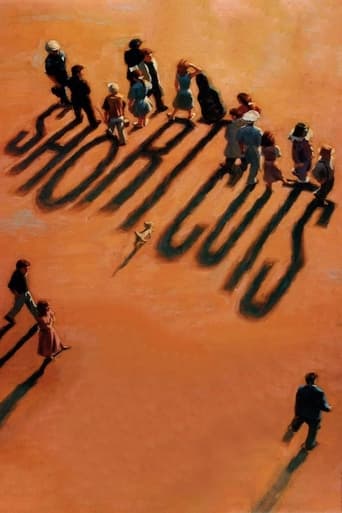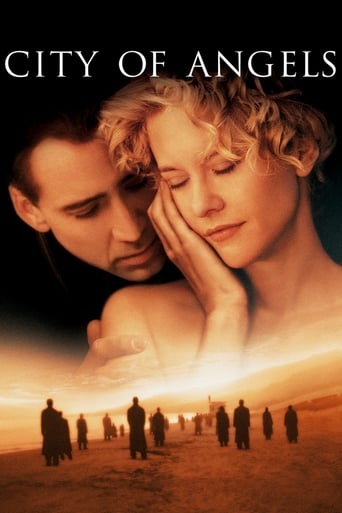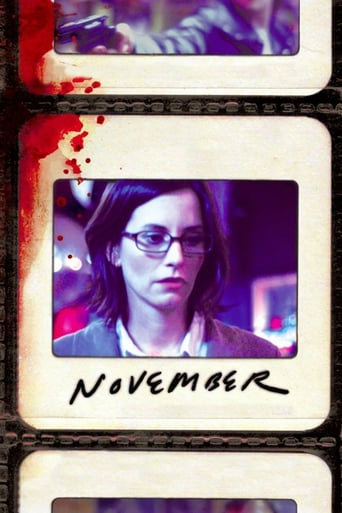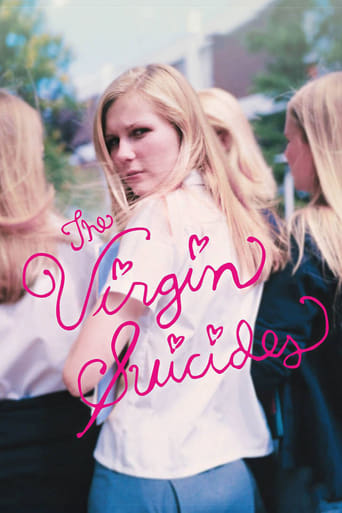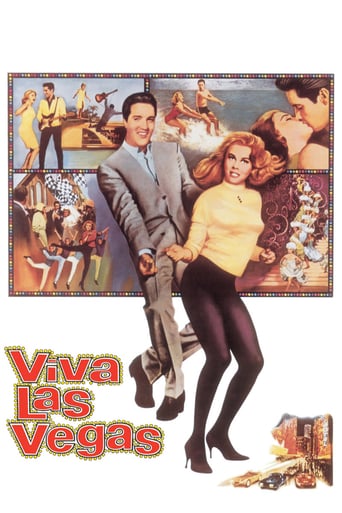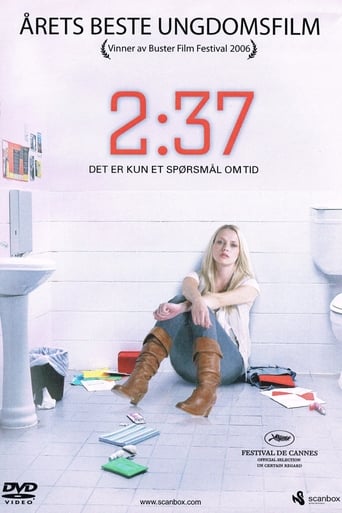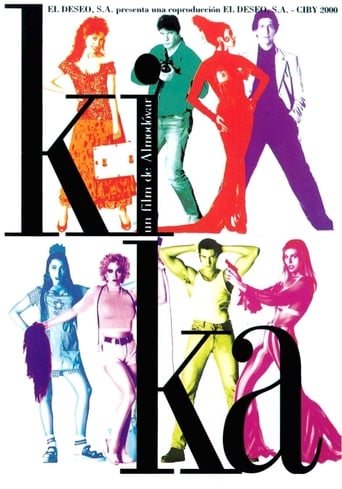
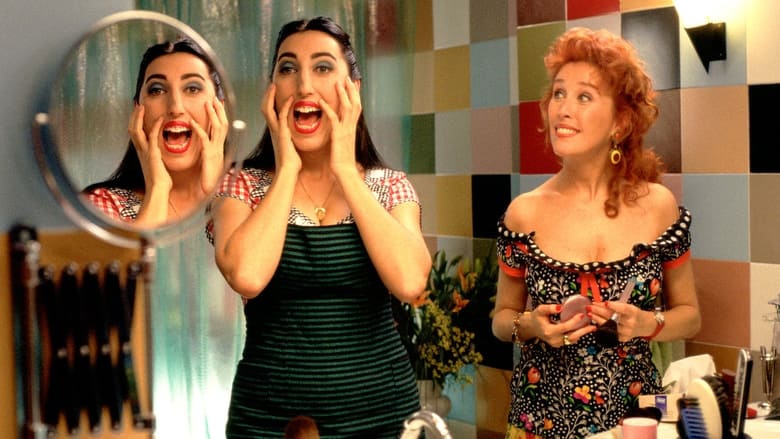
Kika (1994)
When American author Nicholas brings in a cosmetologist named Kika to prepare the corpse of his recently deceased son, she inadvertently revives the young man, then falls in love with him. Forces conspire against the couple, though, as Nicholas wants Kika for himself.
Watch Trailer
Cast
Similar titles
Reviews
Too much of everything
Pretty Good
At first rather annoying in its heavy emphasis on reenactments, this movie ultimately proves fascinating, simply because the complicated, highly dramatic tale it tells still almost defies belief.
It's simply great fun, a winsome film and an occasionally over-the-top luxury fantasy that never flags.
his universe, his basic ingredients. a fairy tale who becomes in his hand a manifesto. about love, about gestures, about sense of life and force of relationship. nothing new at the first sigh. Victoria Abril in same kind of role of the powerful/seductive woman who impose the order to a complicated/ fragile universe, Peter Coyote as the best choice for Nicholas, Alex Casanovas as a kind of victim who needs the woman's support. adventures, sexuality and cruelty, secrets and strange end are the old solutions for a not comfortable film in the case of Almodovar. but Kika has something different. a strange poetry of scenes, the science of Veronica Forque to give precise nuances to her character in inspired manner.
There is no director whose films embody the strange spirit of the new wave movement of the 60s like Pedro Almadovar. His weird, disjointed and patently bizarre works are a breath of fresh air given that we live with movies that come out of a Hollywood that prefers that directors just bow their heads and do as they are told. His most striking works came before his notoriety with the overrated 'Women on the Verge of a Nervous Breakdown'. Before that he fleshed out such singular masterpieces as 'Law of Desire' and 'What Have I Done to Deserve This?'. No film since 'Women' (until the recent 'All About My Mother') has captured his pre-fame brilliance and during that dry spell came one of the worst, a little disappointment named 'Kika'.The main topic of discussion given to 'Kika' has been it's politically incorrect rape scene played here for laughs but comes off as ridiculous and uncomfortable. But seething around that scene is Almadovar's target - the rape given by the media into the private lives of anyone who ever takes their clothes off. The villain of the piece is a tabloid journalist named Andrea Scarface who runs a hot TV show called 'Today's Worst' and buzzes around on a motorcycle with a camera mounted on her helmet hoping to catch crimes as they happen.Andrea's former lover is now seeing the title character, a shapely cosmetologist with a big mouth named Kika whose personality is infectious but (I believe) would have been better served in a different movie.Kika is currently being lusted after by her lesbian maid (Almadovar regular Rossy de Palma) and the maid has a chauvinistic brother who is not only an ex-porn star but who's first day out of jail leads to aforementioned rape scene. Also attached to the story is an expatriate writer (Peter Coyote) whose wife's murder remains a mystery and has driven him nearly comatose.'Kika' feels like a first draft, there is little interest in the underwritten characters and most of the outrageous scenes exist, not for laughs but just for the sake of being outrageous. It lays a lot of characters on the canvas but can't find a use for them outside of their introductory status. This is a minor effort in which the biggest joke is really on the viewer.
Almodóvar does Fellini? Well, that seems to be the general tone of the film here, as the director takes a central caricature and drops them into a mocking satire of grotesque farce, frightening colours and the continual abstractions of 1950's melodrama, all the while revelling in the juxtaposition of highbrow movie references and lowbrow humour. Understandably, with such a giddy concoction of ideas, the film is something of a mess; with the collage of styles and somewhat awkward combination of film references combined with the over-the-top production design and characterisations of the director bombarding us from the first scene to the last, while some of the more outré moments of satire, including the (intentionally) morally bankrupt nature of the character "Scarface" and the near-infamous rape sequence that plays out in the same frivolous, high-camp approach as the rest of the film are sure to raise a few groans of disagreement from many of the less liberal of reviewers amongst us.Having said that, I personally feel that despite its position in Almodóvar's career as something of a creative misstep, there are still some incredibly intelligent and highly interesting ideas at work behind the film, some of which we have to really search for amidst the camp theatricality of the characters and the screaming kitsch of the narrative and its overall design. It has certain similarities to Fellini's La Dolce Vita (1960), with the comment on journalism and the depiction of the media against an episodic background that seems to go nowhere until the last twenty minutes of the film, at which point Almodóvar introduces a new strand to the drama that will probably make it necessary for a second or perhaps even third viewing to fully comprehend. It also has the same interesting concept of the writer creating the story as it unfolds that we previously saw in the excellent Law of Desire (1987), with the character played by Peter Coyote writing a crime book that might be a veiled comment on his own character and role within the film, or might be the plot of the film itself. However, unlike Law of Desire, the idea isn't carried off quite so well, with the notion eventually being pushed into the background as we focus more on "Scarface" and her trash TV empire that forces itself into the lives of the characters, creating an interesting comment on the idea of cinema as voyeurism previously foreshadowed in the "keyhole" iconography of the opening sequences, and the thread of exhibitionism that is cemented by the film's male lead, the photographer Rámon.Throughout the film these themes jostle for our attention as we watch the drama unfold from an affluent apartment building overlooking an obviously artificial recreation of night-time Madrid, as the characters seem to just drift from one scenario to the next in a way that doesn't always make sense until pondered over in light of the film's somewhat enticing "twist" ending. Ultimately, you could argue that with Kika (1993), Almodóvar really bit off more than he could chew, as he takes full advantage of the larger dramatic canvas offered to him by the international success of Law of Desire, Women on the Verge of a Nervous Breakdown (1988) and Tie Me Up! Tie Me Down! (1990) to truly indulge his interests in farce, design, fashion and theatrics. It's a self-indulgent work, without question, but I feel for an artist of Almodóvar's calibre, such indulgences are excusable; especially when the purging of such indulgences eventually leads to work of the impeccably high-standard of Live Flesh (1997) and All About My Mother (1999). The film is also a triumph of perfect casting, though one does wonder why Coyote - with his voiced awkwardly dubbed into Spanish - is present over a greater actor like Eusebio Poncela, who in my mind would have been perfect for the part?Other than that rather odd choice, we have the film tied rigidly to the underrated performance of Veronica Forqué, who manages to convey the moves from comedy to tragedy without compromising the colourful tone or her somewhat ditzy characterisation. Her performance is really a marvel in my opinion and definitely makes Kika worth experiencing, even in spite of its various limitations. There's also fine support from Victoria Abril, Alex Casanovas and the truly iconic Rossy de Palma (once seen, never forgotten). Certainly, I can understand why many wouldn't like this film, what with the provocative nature of the tone, the lapses in character and the occasional slow pace, but there are still some interesting touches that should make this required viewing for anyone already familiar with the director and his work. As with the other Almodóvar films that I've seen from this era, Kika is bright and vibrant and filled with moments of keenly observed character-play and fanciful farce against an approach to film-making that rivals the very best of contemporary European cinema.
This was the first Almodóvar film that I saw, and I would still say that it's one of his better movies. It's yet another highly unusual film by the Spanish director, filled with weird situations and his typically unorthodox style. The story is actually somewhat flimsy, and I didn't much care about what would happen to the main characters. However, I enjoyed this film because I liked a high number of the silly jokes. Like all Almodóvar films, this definitely isn't for all tastes, but if you like unconventional films, this is a pretty good choice.





